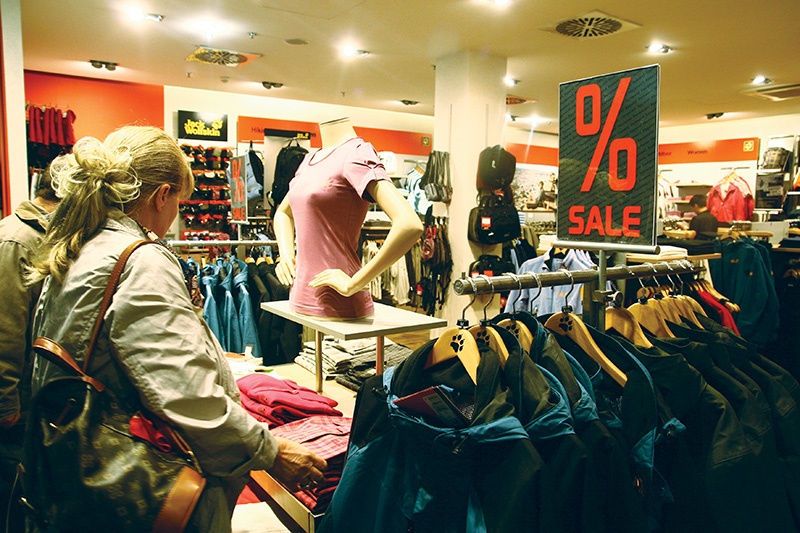On track for attracting German partnerships
 |
| Marko Walde, chief representative of the Delegation of the German Industry and Commerce in Vietnam (AHK Vietnam) |
Vietnam has a dynamic investment environment, fast economic growth, and showed a remarkable transformation over the past 10 years. Despite the pandemic, the country is among the few countries after China to record positive GDP growth in 2020.
Vietnam’s GDP growth is forecast to exceed 4.8 per cent this year, according to the World Bank. The accelerated COVID-19 vaccinations have been strongly applied in large cities and commercial hubs in Vietnam, such as Ho Chi Minh City, Hanoi, Dong Nai, Binh Duong, and Danang.
In addition, the German government has decided to aid Vietnam with 2.5 million doses of AstraZeneca in September and has been the biggest donor among EU member countries for Vietnam. This action plays an essential role in accelerating the vaccination process and will create a special milestone in the bilateral relationship, further elevating the comprehensive partnership between both nations.
Since 2011, Germany and Vietnam have had a strategic partnership involving projects at all levels and in numerous policy fields. The two countries regard themselves as partners in endeavours to uphold the rules-based order, respect international laws, multilateralism, global free trade and investment, and environmental and climate protection.
With a trade volume of €13.3 billion ($15.6 billion) in 2020, Vietnam is the biggest ASEAN trading partner of Germany. Over 500 German companies - via different forms of investment such as foreign direct investment, mergers and acquisitions, and joint venture - are present in Vietnam, and the total investment reached $2.25 billion as of August 20. This investment has created around 47,000 quality jobs in Vietnam.
A recent World Bank study showed that the simultaneous implementation of the EU-Vietnam Free Trade Agreement (EVFTA) and the Comprehensive and Progressive Agreement for Trans-Pacific Partnership will help Vietnam’s GDP increase by up to 3.2 per cent in the next decade. The country will become a strategic investment destination in the process of restructuring global and regional supply chains, as well as a potential domestic market to attract international corporations.
Overall, the country is expected to continue leading the region in recovering and remains at its position as an attractive investment hub for German enterpreneurs in the long term. They are drawn in by the reasonable and high-quality labour, the open investment environment, new generation free trade agreements, and a growing local consumer market.
 |
| Trade with Germany has been rising since the EVFTA came into force. Photo: Thanh Tung |
Beefing up investment
The EVFTA offers countless opportunities for businesses on both sides. European and German companies can enjoy protection of investments with trade facilitations in Vietnam. This will happen through removing tariffs, reducing regulatory barriers and overlapping red tape, and ensuring protection of geographical indications, as well as opening services and public procurement markets and making sure the agreed rules are enforceable. New market access opportunities across a range of sectors will also be created. Overall, the mere fact that Vietnam closed this comprehensive, next-generation FTA is inspiring among investors.
Many foreign businesses consider shifting their supply chains from China to Vietnam because the latter is home to an agile and flexible economy, as well as a swift responsive ability to the ever-increasing speed of innovation. This trend, called China plus One strategy, could catapult Vietnam to a prime position to attract many German investors.
The EVFTA, with its liberalisation of customs duties and the strengthening of trade and business relations, offers numerous opportunities for EU and German businesses. It will provide greater access to an emerging market with almost 100 million people, including about 55 million at working age. Furthermore, the agreement presents greater opportunities for partnership and cooperation and creates stronger relations with the Southeast Asian region.
In addition, the EVFTA highlights the principle of non-discrimination that allows German companies to be entitled to the same treatment as Vietnamese companies during their entire procurement process. The impartiality enables fair competition between parties and creates a more favourable and supportive environment for the development of German companies as well as their trade activities in Vietnam.
For the mid-term, we hope that German investors will increase investments in Vietnam based on the improved conditions here. I strongly believe that there will be many funds for high-valued projects in the long term, including from Germany. German investors would bring their well-known technology in management and training, allowing for more value-added production and less waste of material and resources.
Expanding trade
Europe is a large market for Vietnamese goods and vice versa. Thanks to the EVFTA the elimination of bilateral tariffs and export taxes and the reduction of non-tariff barriers affecting the cross-border exchanges of goods and services are expected to boost bilateral trade considerably and create new opportunities to access markets across a range of sectors, covering goods, services, and investment for German companies in Vietnam. This is particularly true in the automotive, green energy, electronics, IT, food processing, healthcare industry, and education industries.
Trading activities between both parties have witnessed a sustainable development and are predicted to grow further in the time ahead, which greatly benefits German and Vietnamese exporters in different industries.
For German exporters, traditional goods such as machinery and measuring equipment will likely profit the most. For the Vietnamese side, many positions already had low tariff rates due to the Generalised System of Preferences. However, further tariff reductions will apply and thus open chapters for agricultural produce, processed food, and footwear even further.
Challenges remain
Participating in the new generation of FTAs could also create challenges for Vietnamese products, especially in terms of intellectual property rights protection, global competitiveness, and the origins of a product’s materials. Local companies should improve their competitive advantages as soon as possible. Vietnam should adjust policies to speed the development of supporting industries in terms of educating high-quality workforce, exchanging experiences, and digitalisation.
We think these are essential strategies for Vietnam to develop sustainably. Moreover, the government can create the most favourable conditions for foreign investors and businesses, and these EVFTA commitments will boost the economic growth of this country and attract more investors to Vietnam.
The Asia-Pacific Committee of German Business calls for stronger EU commitment in Asia and confirms the growing importance of Vietnam as a production location. The country is playing an increasingly important role for German businesses in the region.
As chief representative of AHK Vietnam, I look forward to more expansion plans of German groups in Vietnam, and to supporting German and Vietnamese investors in enhancing their business relations, networking, and in experience exchange.
| The EVFTA will remove tariffs on a range of key EU export products - Almost all machinery and appliances will be fully tariff-free at entry into force, and the rest after seven years. Current duties are 35 per cent. - Motorcycles with engines larger than 150cc will see tariffs fully removed after seven years (current duty is 75 per cent) and cars after 10 years (down from 78 per cent). - Car parts will be duty free after seven years (current duties are 32 per cent). - Roughly half of EU pharmaceuticals exports will be duty free at entry into force and the rest after seven years (currently facing duties of 8 per cent). - All textile fabric exports will see their duties removed at entry into force (currently with a tariff of 12 per cent). - Nearly 70 per cent of EU chemicals exports will be duty free at entry into force (current duties up to 5 per cent) and the rest after three, five or, respectively, seven years (current tariffs of 25 per cent). - Wines and spirits will be fully tariff-free after seven years (down from tariffs of 50 and 48 per cent respectively). - Frozen pork meat will be duty free after seven years, beef after three years, dairy products after a maximum of five years and food preparations after a maximum of seven years. - Tariffs on chicken will be progressively reduced to zero in the next 10 years. - For sensitive agricultural products, the EU will not open its market up to Vietnamese imports completely. Quotas will limit the quantity that can enter the EU duty-free. This includes rice, sweet corn, garlic, mushrooms, eggs, sugar and high-sugar-containing products, manioc starch, other modified starches, ethanol, surimi, and canned tuna. |
What the stars mean:
★ Poor ★ ★ Promising ★★★ Good ★★★★ Very good ★★★★★ Exceptional
Related Contents
Latest News
More News
- Vietnamese businesses diversify amid global trade shifts (February 03, 2026 | 17:18)
- Consumer finance sector posts sharp profit growth (February 03, 2026 | 13:05)
- Vietnam and US to launch sixth trade negotiation round (January 30, 2026 | 15:19)
- NAB Innovation Centre underscores Vietnam’s appeal for tech investment (January 30, 2026 | 11:16)
- Vietnam moves towards market-based fuel management with E10 rollout (January 30, 2026 | 11:10)
- Vietnam startup funding enters a period of capital reset (January 30, 2026 | 11:06)
- Vietnam strengthens public debt management with World Bank and IMF (January 30, 2026 | 11:00)
- PM inspects APEC 2027 project progress in An Giang province (January 29, 2026 | 09:00)
- Vietnam among the world’s top 15 trading nations (January 28, 2026 | 17:12)
- Vietnam accelerates preparations for arbitration centre linked to new financial hub (January 28, 2026 | 17:09)

 Tag:
Tag:




















 Mobile Version
Mobile Version